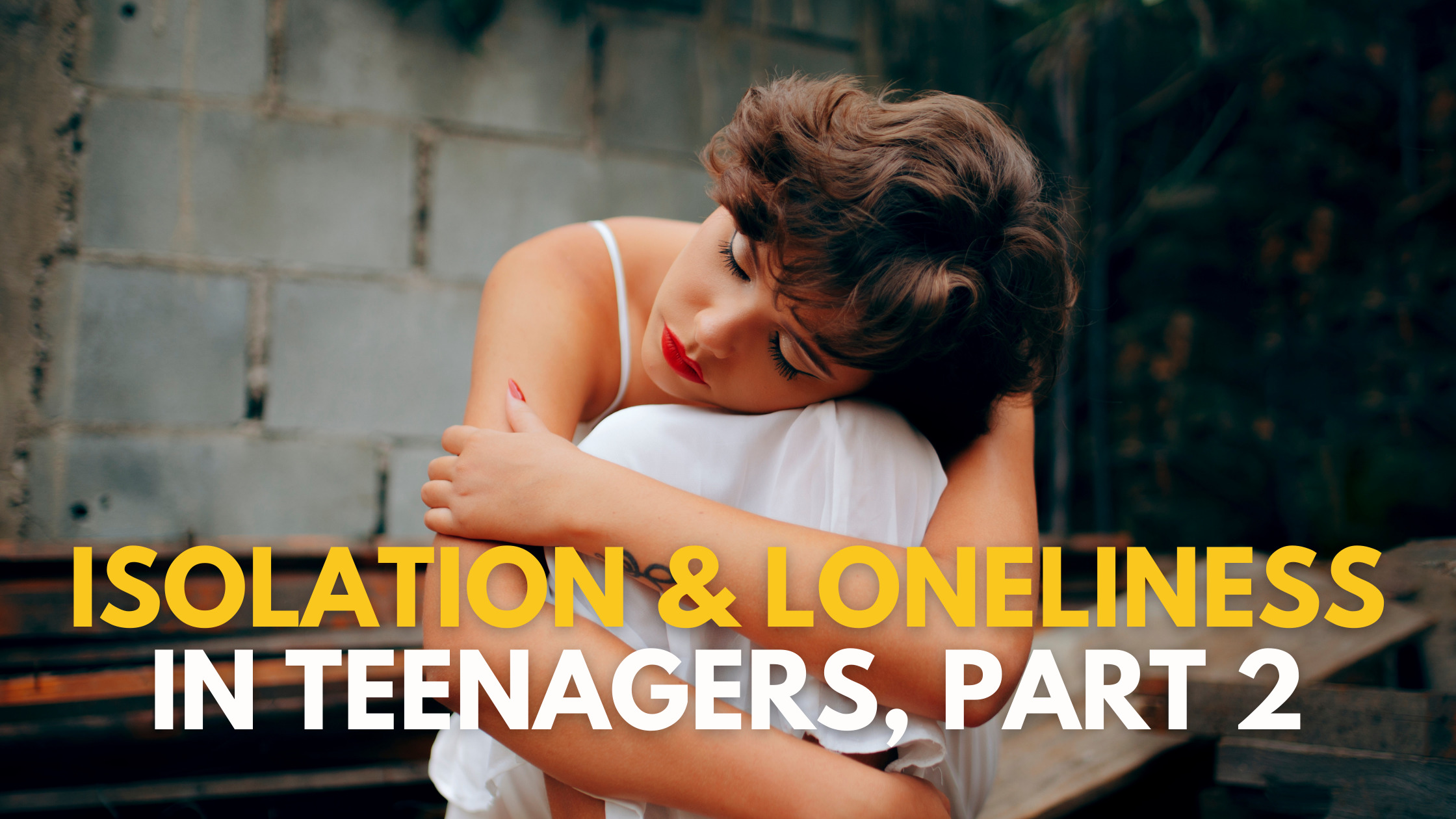We Need To Be Prepared
In Part 1 of Isolation and Loneliness in Teenagers, we shared normal stressors in the lives of teens, how to engage our youth now, and warning signs that isolation has become too much.
While we all hope to never be in a situation where we are on the front line of helping a teen through clinical or situational depression, we must be prepared that it is always a possibility – especially now as the world opens back up from the global pandemic. Here are some ways you can monitor signs of depression and action steps you can take when you see these signs.
Signs Of Depression/Suicidal Ideation Or Thoughts
Withdrawing
This may be hard to monitor if not in-person, but if a teen is withdrawing from activities that usually bring them pleasure, this could be a sign of depression.
Verbal Signs
Teens may tell you or a loved one:
“I just don’t think I can live like this anymore”
“I don’t want to live like this anymore”
“My family/this world will be better without me”
“Everything would be easier if I were gone/dead”
“I just can’t see a future anymore”
Physical Symptoms
Bags/dark circles under eyes
Lack of sleep // sleeping too much // unusual sleep patterns
Cutting marks on arms/wrists
Inability to focus
Rapid weight loss or gain // Loss of appetite
Giving Possessions Away
If a teen begins giving away their favorite possessions, they may be looking for ways to have their friends and family be reminded of them after they are gone.
What If It’s MORE Than Isolation or Loneliness In Teenagers
The following information is taken from the community-version of the Columbia Suicide Severity Rating scale (C-SSRS). If a teen says or does anything that makes you think they are actively suicidal, act quickly and calmly:
DON’T BE AFRAID to ask the following:
1. Have you wished you were dead or wished you could go to sleep and not wake up?
2. Have you actually had any thoughts about killing yourself?
If the loved one answers “yes” to question 2, ask questions 3, 4, 5 and 6. If the person answers “no” to question 2, go directly to question 6.
3. Have you thought about how you might do this?
4. Have you had any intention of acting on these thoughts of killing yourself? OR, You have the thoughts, but you definitely would not act on them?
5. Have you started to work out or worked out the details of how to kill yourself? Do you intend to carry out this plan?
Always ask question 6: In the past three months, have you done anything, started to do anything, or prepared to do anything to end your life?
REMEMBER
In these crucial scenarios, SAFETY outweighs CONFIDENTIALITY; depending on the state in which you practice youth ministry, you may be a mandated reporter.
First, ASK the teen to tell their parent/guardian, or state that you would now like to tell their parent/guardian – but between the two of you, someone must tell them.
Additionally, BE PREPARED – Always have the home address(es) of each youth easily accessible in case you must be the one to call 9-1-1.
ENCOURAGE them to seek the help and advice of a counselor, therapist, or a supportive stranger by calling the National Suicide Prevention Lifeline (1-800-273-8255). If a traditional talk therapist sounds intimidating to them, try Music Therapy, Art Therapy, or any other Creative Arts Therapy – research has proven these modalities to be effective for teens who are reluctant to attend talk therapy.
Other Ways To Care For Teenagers Experiencing Loneliness, Isolation, Anxiety, or Depression
CHECK-IN
Weekly or even daily personalized and individualized check-ins with at-risk and/or all youth (in-person, phone calls, texts, email, zoom calls – whatever is THEIR preference is best).
GET TOGETHER
Offer get-togethers as often as you can for your youth. If they are struggling, they may not attend each one; but knowing they frequently will have the option might help them not to feel alone.
CARE PACKAGES
Snail mail, 3rd party delivery (Uber Eats, Door Dash, Amazon etc.), or even front-door drop-off. Leave encouraging messages, a Bible if they don’t have one, snacks, whatever you think would make them feel loved.
ENCOURAGE COMMUNICATION
Not only with you, but with their friends, family, and others in the youth group. The more that teens can feel connected and not alone, the better!
GO OUTSIDE
Encourage your youth to go outside and get some fresh air and Vitamin D whenever they can! This change of scenery and the physical benefits of being outside and getting exercise can help all of us take a much-needed break and even change our thinking and perspective!
MUSIC & ARTS
Encourage active engagement in music listening and music-making, creating, and enjoying art – this can emotionally, mentally, spiritually, and psychologically benefit our brains and bodies!
As youth ministers, we can and MUST be helpful in the lives of our teenagers who are experiencing loneliness and isolation. It’s the best way to help them experience the love of Christ!

Mallory Even, LPMT, MT-BC, is a Board-Certified and Licensed Professional Music Therapist. She earned her degree in Music Therapy at The Florida State University, and has owned her private practice, Metro Music Therapy, which is based in Peachtree Corners, GA (NE Atlanta), for over 12 years. Mallory has a heart for using music to serve others, both professionally and personally, and has been a worship leader at various churches in Florida and Georgia throughout the last 20 years.
You can contact Mallory by sending her an email.



We Would Love to Hear Your Thoughts